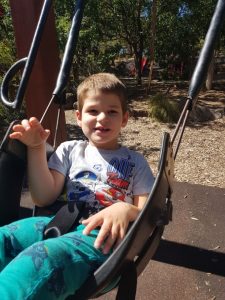Brooklyn
Share This Post
I call her Rosie. I know it’s silly, and I am the only one, but it describes my incredible girl so perfectly. Brooklyn Rose Greitzer is beautiful. She’s got so much going for her and just brings pure joy to all of those around her. She can be a leader, but will also follow. Her friends will tell you that she’s funny and kind. To a stranger she is shy and serious. Brooklyn Rosie is a lot of people’s favorite person because she seems to innately know how to be who they need. This is quite a gift.
Brooklyn is our first daughter of three and is an extremely kind, affectionate, loving, responsible and ambitious girl who also happens to have GRIA4. She adores her sisters, candy, family, candy, her Judaism, school, candy and cheer. She currently wants to be a nurse and cheer coach when she grows up and is planning on working her way through college at Starbucks. Other career choices she has dreamt of are fashion designer and make-up artist for the stars.
When Brooklyn was an infant she seemed ahead of the curve developmentally. She rolled over the day she was born and immediately crawled up my stomach to nurse for the first time. At 6 months she could clap, play peek-a-boo, was standing, cruising and communicated very effectively with baby-sign and some verbal language. At about 9 months old we started to notice that her development was plateauing. At first we thought nothing of it and figured that it was normal. Maybe the other kids in her playgroup were just catching up?
Then, at about 18 months old, her gymnastics coach started to tell me that there was something up with her gross motor skills. She was still too unsteady on her feet and her gross motor planning was delayed. Brooklyn, being my first, was perfect in my eyes. And still is. That coach was crazy (I continue to think that about most people) and yet, at about two years old, her Mommy and Me teacher pulled me aside. She said that she was concerned about Brooklyn’s overall development: cognitive, language, and gross/fine motor. That’s when I acknowledged that Brooklyn was no longer advanced. She was probably behind.
Early Intervention came out to evaluate and said her cognition was an 80 and you needed to be a 79 to qualify for services. Her language was dead average and their PT saw a lot of infantile reflexes, but chalked it up to development. They didn’t seem concerned when I mentioned the trajectory of her development. Brooklyn’s pediatrician told me that Early Intervention was crazy. There was “no way” her cognition was an 80. He said exactly what I wanted to hear. The test was invalid. I shouldn’t worry about her not qualifying for services.
Yet…I couldn’t get the nagging feeling out of my head, no matter how much I wanted to ignore it, that something was up. I went to the public schools and had her evaluated again. This occurred about 9 months after the initial Early Intervention evaluation. The school team confirmed her below average cognition, gross motor skills and, at that time, her language was in the low average range. She qualified for a free preschool program and physical therapy, but not speech and language services. Again, the team chalked up my thinking that Brooklyn was a brilliant baby to being a first time mom.
The following year, at age 4, I started noticing that she spoke as if English was not her native language. She would say things like, “You pick me up to school today?” I went back to the school speech and language therapist who told me that she’s in Brooklyn’s class weekly and has no concerns about her language. The school continued to deny her services, so I started private speech therapy.
Brooklyn began All Star cheer at this time. At 4 years old, she was clumsy and that’s putting it mildly. She showed up to practice to play with her friends and, of course, get candy from her favorite coach, Rose. Coach Rose gave, and continues to give, Brooklyn love, a home where she would feel safe to take risks, and an environment where she would eventually achieve every goal, demonstrate leadership, confidence and a love for her sport and teammates.
When Brooklyn transitioned to elementary school she was reevaluated for special education services. Her language scores fell into the below average range, so finally, starting in first grade, at 6.5 years old, she would receive school based language therapy. Remember, this is a child who was advanced in her language skills as an infant.
Brooklyn didn’t learn to read in Kindergarten or first grade. Second grade was hybrid due to Covid. She really made little gains academically and physically. Her teammates at cheer who either started at the same time or years after her were showing far more advanced skills. Three years into cheering 2x a week for two hours at a time, she was still working on her cartwheel. Her friends had back handsprings, could cheer on count and quickly learned routines. Everything was so much harder for Brooklyn. She’d be running around the mat, totally lost, having no idea how to perform the routine after a year of practicing it. We questioned if cheer was too fast paced for her. If her language disability and cognitive deficits were going to be too big of a barrier to overcome.
At the end of second grade, the school offered to pay for Brooklyn to go to a private special education school for students with dyslexia. She was rejected because her language disability was too significant for their program. There were no other appropriate placements in existence in our state, so her team and I developed a co-teaching program for her at her home school.
Brooklyn thrived and finally began to learn how to read. She stopped saying that she didn’t know what was happening in class, and she could report on things that happened at school when she came home. She had an incredible third grade teacher, Mrs. Cunha, who included her in every class activity, gave her leadership roles, and consistently pointed out to her peers what an asset Brooklyn was to their class. Brooklyn began to describe herself as smart and felt so valued.
It was at this point that Brooklyn started making goals for herself both academically and at cheer, as well as finally seeing her potential. Brooklyn wanted to fly on that mat and she had a collection of coaches, and teachers, truly rooting for her. She stopped asking for a night off and instead was disappointed when there wasn’t practice.This was the first time Adam and I saw her putting time and energy into working for something specific.
In December of 2021, her academic team sent her to Boston Children’s hospital for an auditory processing evaluation. They found a very significant auditory processing disability, and there is a definite disruption in how her brain communicates with her ears. We were referred to the learning disabilities program and did a full neuropsychological assessment. When those scores came out even lower than the school’s assessment we were referred to genetics.
We found out Brooklyn has GRIA4 in December of 2022. Dr. Allan Bayat has used Brooklyn’s DNA in his research and believes her mutation is, in fact, explaining her symptoms. Because her variant leads to loss of function, the medication he is developing won’t work to increase her cognitive or language abilities and should be avoided. Her most recent cognitive assessment shows more decline in her language and reasoning abilities and a clinically significant increase in her working memory. I attribute the growth to all the counting in cheer, as well as the ever changing routines she learns, however the decline is very frightening for Adam and me.
Brooklyn just finished fourth grade and is reading close to grade level. With therapies in place, I can finally understand her meaning when she’s telling me a story and she’s the strongest base on her team. Coach Rose figured out how to communicate with Brooklyn so she understood. She was able to teach her, inspire her and helped her finally believe in herself. She kept telling me to trust the process. I thought she just loved my kid, yet she knew that Brooklyn had greatness in her. I kept hearing, “B is finding her voice! B is a leader! B is an unbelievable base!”
That didn’t change Brooklyn’s goal, however. Girl still wanted to fly. It’s currently the third week of the new season. In THIS moment Brooklyn has achieved everything I dreamt for her at 4 years old when it may have been impossible and she was just in it for the play dates. Today she is her team’s flyer and she’s demonstrating advanced skills. Not behind, not average, advanced. Every skill, every accomplishment, every goal takes 2-3x longer for Brooklyn, but with her persistence, she gets there. I learned that the longer it took, the more perfect it looked.
That wasn’t all Brooklyn has taught me. I’ve learned patience. Patience for what the future can hold without anxiety clouding the possibilities. Trust. Trust in her coaches, therapists and educators and trust in Brooklyn, herself! What may take years will still happen, God willing. Gratitude. Gratitude for those incredible teachers, therapists, coaches and mostly for Coach Rose and Mrs. Cunha for being the catalyst to Brooklyn’s bright future just by believing in her. Lastly, Brooklyn has given me hope. Not just in her development, but in the development of medicine, technology and pedagogy. This journey has shown me that no goal is too lofty. If she wants to be a nurse, she can be a nurse! There is assistive technology that will read things to her and define words she doesn’t understand. Her goals are not impossible. Brooklyn can fly.
Read more Posts

GRIN Sibling: Abby
Abby Pellitteri, Twin Sister to Owen, shares her experience on being a sibling to her brother with GRIN Disorder.

Noah
Noah James Coppock, born 11th June 2014, is our 5 year old little superhero.
